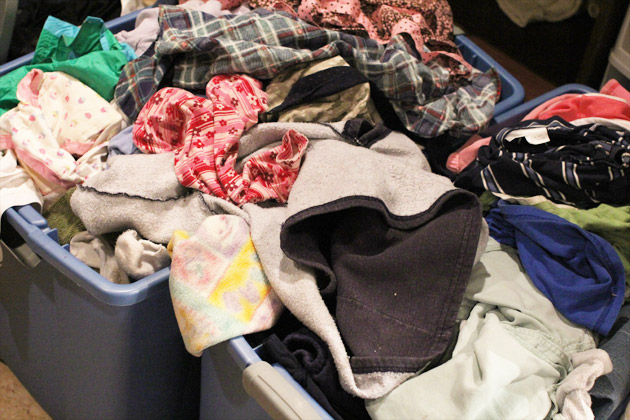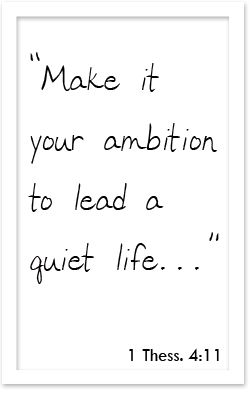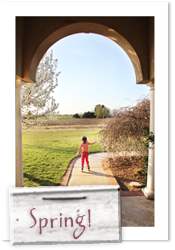Teaching Young Children Not to Lie
If I could have a superpower, it might be omnipresence. I would love to be at all places at all times, especially where it concerns my kids. I’d love to keep them from falling down, to make sure they didn’t eat crayons, to stop them from throwing sand at each other.
And I would love to be able to witness all infractions of the house rules, so I’d never have to ask who colored all over the table…
In these cases, omnipotence could be helpful, too.
Since I have no superpowers, I rely on asking questions, like a normal mortal. And sometimes, like last week, my angelic children respond with lies.
Before I dive into this, I want to give an enormous disclaimer, in bold, red italics. (I considered making it 3D, but I’ll spare you.)
I am dealing with normal children ages four and under.
They still believe me if I say that eating too much candy will make their limbs fall off. And I don’t really tell them things like that! Point number one should be that lying to my kids undermines my efforts to teach them to love truthfulness.
But my current point is that my kids are easily led. Also, they are not faced with very troubling issues beyond cowlicks and lisps. I wouldn’t begin to try to address lying in older children or in those coping with extra challenges.
To begin, then:
Start by knowing the foundation for your parenting approach.
I do my best to base my parenting on my understanding of our faith.
1. The clear, unyielding truth is the beginning – and it’s only a beginning. These are the rules, they are not to be broken, and there are serious consequences if they are broken.
2. Punishment isn’t as motivating as relationship. A loving relationship (made possible through forgiveness) provides the reason for caring whether or not we live a life of guilt, lies, and evaded punishment.
3. The goal (along with healthy relationships) is to understand and embrace the reasons for doing right. Although it is by doing that we begin to understand, the end point is to be increasingly able to make healthy choices by thinking them through.
Ask creative questions to open up the conversation for confession.
In the case of coloring on the table, here’s how the conversation went:
“Did you color on the table?!”
This was a direct, angry question (after another sibling had been blamed). The child felt trapped. Not good.
The only answer I got was silence and a hanging head.
I try to think how I would feel. What am I looking for in this conversation, and how do I get it?
Trying an indirect approach, I ask:
“Can you point out to me where you colored on the table? Which part did you color?”
This was a ridiculous question. There were crayon marks scrawled across the entire surface.
The small pointing finger served as a confession, though. The child was relieved that the truth was out. The topic was opened for discussion, which was my goal.
Teach them what to say in order to confess.
This is the number one thing that has helped us. Somehow, scripting an acceptable response gives my kids the courage to admit that they’ve really done it this time.
In our household, the scripted response is, “Yes, I did it, and I’m sorry.”
Sometimes I wonder about their motives in confessing. An apology softens anger, and my discipline is sometimes softened, too, when they tell the truth and apologize. Lying is such a major issue, though, that I’m willing to give a little (at least in the beginning) if it helps them get into the habit of telling “what really happened.”
Praise for telling the truth.
This is much easier for me to remember when they use the catchphrase: “Yes, I did it, and I’m sorry.” We both recognize that they’ve made a conscious decision to tell the truth. I thank them for telling the truth before disciplining for the original wrong.
Lying carries a different, heavier punishment.
Because lying is so destructive, the punishment for it is worse than the punishment for anything else they might do wrong. When we talk about lying, I explain that even when they tell the truth, they might be disciplined for the original thing they did wrong. But if they lie, the punishment is different and worse. I feel awful whenever I have to discipline my kids, but lying is too serious an issue to let slide.
Help them understand why lying is bad for them.
The reason I don’t like lying is that it prevents people from getting the help they need. I have attempted to tell the kids stories about people who needed help and were only able to ask for it when they admitted how they got into trouble in the first place. (How many fallen pastors should have asked for help?) My kids are too young to grasp the concepts, but I still try. It puts the materials in their minds that will eventually take shape into recognizable concepts.
Invest in plenty of positive time together.
This is the place where I fail, and it’s a dangerous failure. If children are ignored except when doing wrong, they lose any motive to be pleasing. Why try to please someone who can’t be pleased? When I invest a good deal of positive time with them, they learn that it’s fun to do things that foster happy relationships.
Time together outside of a discipline situation is important, but asking a child to do something positive immediately afterward is helpful, too. I don’t want my kids to develop a “bad” self-image. Helping to clean up a mess, or doing something kind for a sibling (beyond the required apology) helps a child feel capable of doing good things.
(In topics for another day: Coloring with marker on skin… The culprit said, with a lisp, “Ith that me, with my hand all methy?” Yeth, that would be you.)
In closing…
Dealing with lying in my children causes me to examine areas where I might not be completely truthful, or at least where I’d rather hide.
Yes, I am a terrible homemaker. I probably should ask for help. I just don’t like anyone else to touch my laundry pile!
So there it is. What do you think? Other than the obvious laundry issue, do these things ring true? What has worked for you? We’re still in the trenches, and sometimes the formulas don’t work, so I’m looking for good ideas.









Debbie, this was so good. In your disciplining your kids, you are not only training their deeds, but you are nurturing their hearts. You are a good mama.
Oh Debbie. Your heart just shines through this post and I just love you to pieces. You’re a wonderful big sister, and a wonderful mom. Your love is sooooo deep and so is your insight. From one who struggled with lying for a long time, I have to praise your for loving them enough to get that habit out of them now, before it really really hurts them.